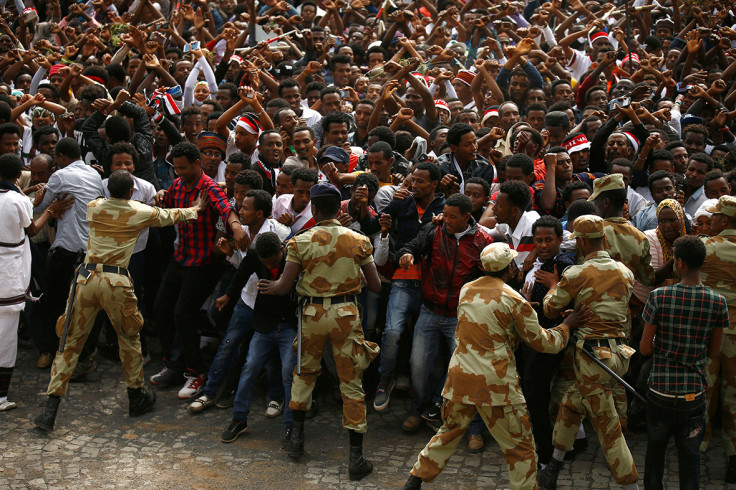Ethiopia lifts travel ban on diplomats as 'peace and security restored'
Travel ban was part of state of emergency declared in Ethiopia after months on anti-government protests.
Ethiopia has lifted a ban on diplomats travelling more than 40km from the capital Addis Ababa. The restriction was part of measures implemented under a state of emergency declared in October following months of anti-government protests.
The ban was lifted as peace and security had been restored in the country, Minister of Defence Siraj Fegessa was quoted by state-affiliated news agency FBC as saying.
The Command Post, established to oversee the implementation of the state of emergency, also lifted a ban on security forces carrying and keeping uniforms at home.
The post also declared law enforcers must show their identity cards and give the reason for the investigation when they conduct search operations.
Ethiopia declared a six-month-long state of emergency following months of unrest in Oromia and Amhara regions. During rallies, Oromo people attacked foreign-owned factories, acts of violence that could result in a reduction in investments in the country.
Among other things, people called for the release of political prisoners, and demonstrated against perceived disenfranchisement and lack of inclusion in the political process as the government is dominated by the Tigray minority.
The response to the protests, labelled as the biggest anti-government unrest Ethiopia has witnessed in recent history, has resulted in the death of more than 500 people since November 2015, a figure the government later confirmed.
Critics to the state of emergency claimed the government was trying to quell protests by, among other things, banning certain media outlets, including the Oromia Media Network (OMN).
The government, which often blamed "outside forces" including from Eritrea and Egypt for the protests, denied the allegations and said it will use the new measures to co-ordinate security forces against "anti-peace elements" that aim to destabilise the country.
Prime Minister Hailemariam Desalegn said the emergency was declared "because the situation posed a threat to the people of the country." He added: "Vital infrastructure, businesses, health and education centres, as well as government offices, and courts have been destroyed".

© Copyright IBTimes 2025. All rights reserved.




















